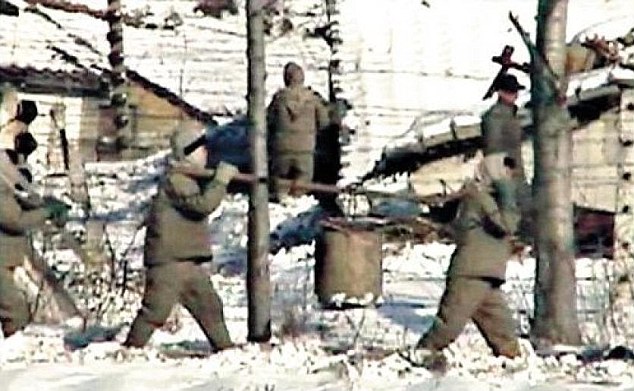by STEVE HAN
North Korea publicly acknowledged the existence of its labor camps for the first time, apparently in response to a highly critical U.N. human rights report, but dismissed all accusations of human rights violations in its camps.
North Korean foreign ministry official Choe Myong-nam made a rare appearance in an open meeting at the U.N. on Tuesday before a room full of diplomats and journalists to emphasize that there are “no prison, things like that” anywhere in the reclusive country, according to the Associated Press.
“Both in law and practice, we do have reform through labor detention camps – no, detention centers – where people are improved through their mentality and look on their wrongdoings,” said Choe, who represents the North Korean Association for Human Rights Studies.
“Labor detention camps” are internment sites where the North Korean regime holds political activists, many of whom commit the “anti-state crime” against the country. Released in February, the U.N. report cited testimonies from North Korean exiles, who confirmed that “extermination, murder, enslavement, torture, imprisonment, rape, forced abortions and other sexual violence” are among common occurrences at the camps.
“While the North Korean human rights record remains abysmal, it is very important that senior North Korean officials are now speaking about human rights, and expressing even pro forma interest in dialogue,” Greg Scarlatoiu, executive director of the Washington-based Committee for Human Rights in North Korea, said in an email.
“The North Korean strategic approach to human rights issues used to be to simply ignore reports by international NGOs, government agencies or U.N. bodies. Human rights used to just go away, out-competed by nukes, missiles, and military provocations.”
Although Scarlatoiu called North Korea’s public admission of its labor camps “a modest step in the right direction,” he emphasized that Choe’s statement does not acknowledge the bleak conditions of the camps, which is estimated to hold 120,000 people.
Photo courtesy of Daily Mail U.K.






